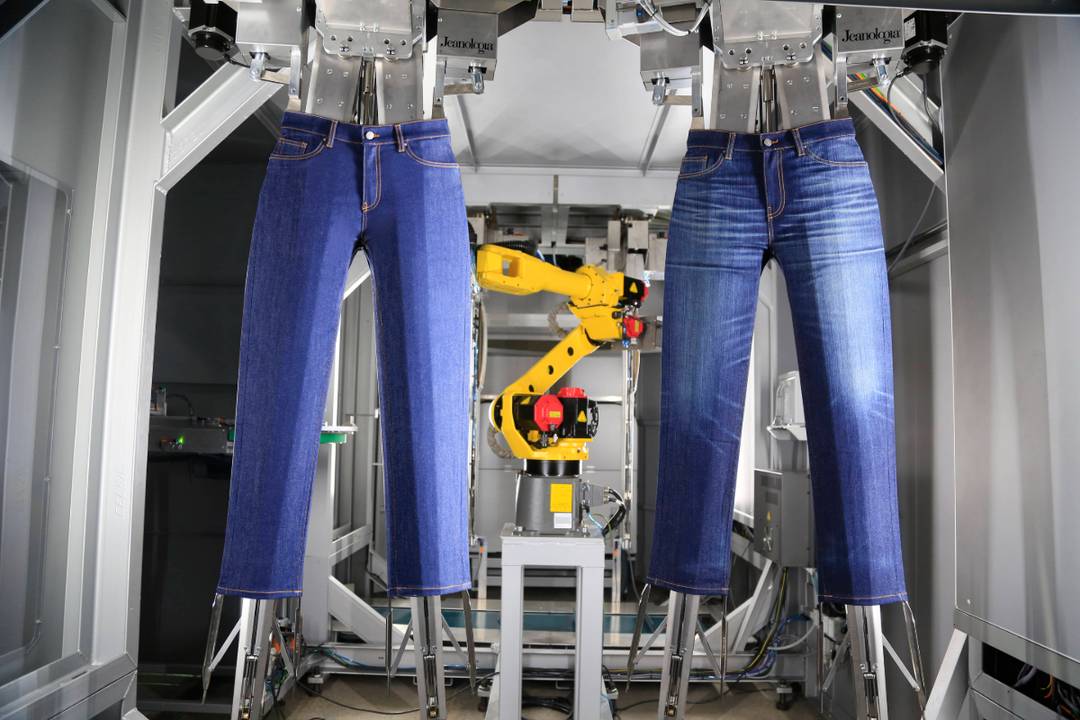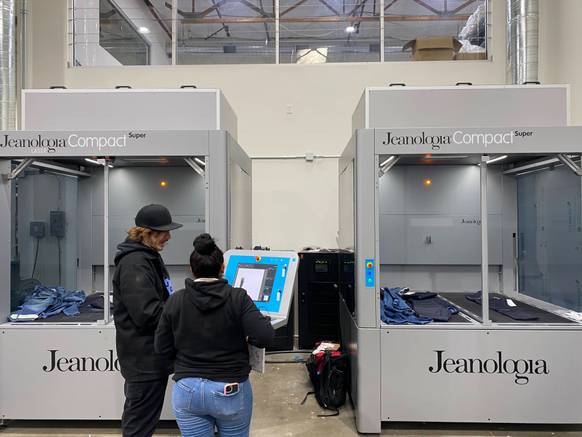
Denim Forward, Inc. (DenimFWD), has been launched in California, USA as a digital, on demand production factory. It was created to help the “return to textile production to America”.
Jeanologia, an eco-efficient company, has been partnered by the denim plant to implement its technology into its production process. This is a service that acts as a close to the consumer, on-demand service that is digital, sustainable, and automated.
DenimFWD, which was deemed the first “Urban Factory” in the world, stated that it plans to return 15 to 25% of US manufacturing production. It hopes this will help to start the process of reindustrialisation that the textile industry requires.
Carlos Arias, the CEO of the company, stated that the pandemic had had an impact on local production. Arias stated that the US would bring back manufacturing, which will “connect creativity and production”, and help the next generation of industrialists.

He said: “With the Urban Factory, the customer will decide to purchase a product. That product will be completed at that moment and delivered that day, eliminating stock.”
Jeanologia’s partnership will allow it to reach the rest of the garment sector, encouraging other brands and companies to adopt digital production methods. The tech company’s goal of eliminating all pollution and discharge from jeans around the world is further supported by this partnership.
Digital, sustainable, and on-demand production
Jeanologia technology was used in the factory process. It includes G2 Ozone and e-Flow. SmartBox and ColorBox are software to measure environmental impact. H2Zero is a water treatment system and recycling system that emits zero discharge. The factory will also house the first US-based Handman. This allows for automation between humans and robots, which aids in scaling production.
DenimFWD claims that its process reduces delivery times. It can produce up to 5K jeans per day and up to 4000 t-shirts per day. The company also noted five other benefits that it offers to the textile industry: eco efficiency, scalability and agility, digital methods, neutral cost, and agility.
It concluded that DenimFWD was transforming the industry by producing what’s sold, rather than selling what’s produced, reducing operational cost and environmental impact, and guaranteeing zero discharge.



